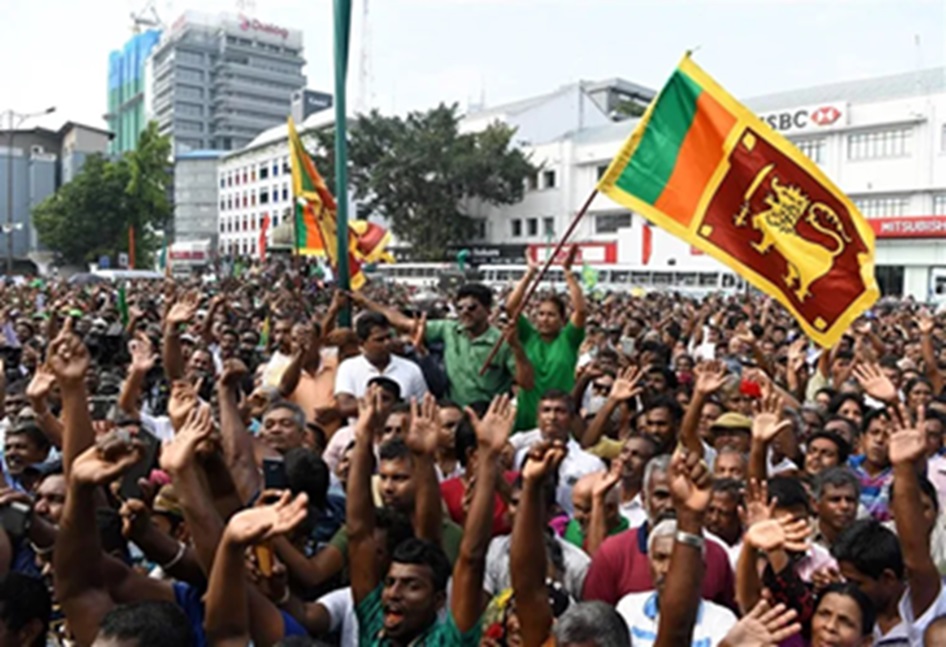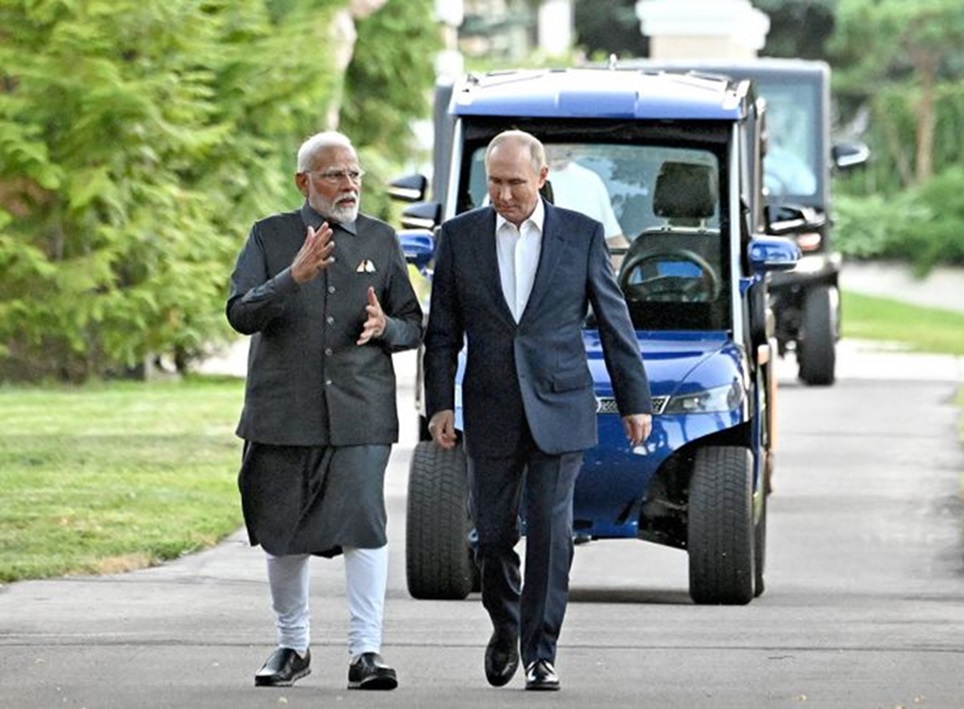This research paper delves into the intricate geopolitics of healthcare through an in-depth analysis of the UK-India collaboration in the health care sector. As global health systems face unprecedented challenges, international partnerships have become crucial in addressing public health issues, access to healthcare services, and medical innovation. This study explores the dynamics, motivations, and outcomes of the healthcare collaboration between the United Kingdom and India, shedding light on how geopolitical factors shape healthcare policies, research initiatives, and resource allocation.
By examining this bilateral partnership, the research provides insight into the intricate interplay of geopolitical interests in healthcare. It offers recommendations for enhancing healthcare cooperation in an increasingly interconnected world.
Introduction
Healthcare is a critical geopolitical issue, with access to quality healthcare services essential for national security, economic development, and social stability. The UK- India healthcare collaboration is a unique example of bilateral cooperation, spanning various areas, including research, innovation, capacity building and service delivery.
The UK-India is relevant in the recent global trends of the rise in global health challenges, such as pandemics, antimicrobial resistance, and non-communicable diseases; it calls for international cooperation to address these challenges effectively. Additionally, the growing importance of healthcare diplomacy in building and strengthening bilateral relationships and the increasing role of the private sector in healthcare delivery and innovation.
This collaboration of India and the UK in the healthcare sector is significant and relevant for current research because it provides insights into the intricate interplay of geopolitical interests in healthcare and offers recommendations for enhancing healthcare cooperation in an increasingly interconnected world. It highlights the importance of healthcare diplomacy in building and strengthening bilateral relationships and contributes to understanding how public-private relations can be leveraged to improve healthcare access and outcomes.
The geopolitics of healthcare refers to the complex interplay of political, economic, and security factors that shape healthcare policies, practices and outcomes. It encompasses a range of issues, including access to healthcare services and resources, the distribution of power and influence in the global healthcare system, the role of international organisations and agreements in healthcare governance, the impact of geopolitical factors on medical innovation and research, and the use of healthcare as a tool of diplomacy and soft power. A clear example is the COVID-19 pandemic, which highlighted the importance of geopolitics in healthcare. Countries competed to access vaccines, diagnostic tests, and other essential medical supplies. Some countries have also used vaccine diplomacy to advance their foreign policy objectives.
Moreover, the global distribution of healthcare resources is highly unequal. High-income countries have significantly better access to healthcare services and resources than low-income countries. Geopolitical factors, such as trade restrictions and uneven distribution of foreign aid, exacerbate this inequality.
International organisations, such as the World Health Organization (WHO), play an essential role in global health governance. However, the WHO’s effectiveness is often limited by geopolitical considerations. For instance, the WHO has been criticised for its slow response to the COVID-19 pandemic due in part to pressure from member states.
Similarly, Geopolitical factors impact medical innovation and research, where countries invest in research on diseases that are most prevalent in their population or considered a national security threat.
The UK- India collaboration in the healthcare sector is a comprehensive bilateral partnership that includes research and innovation, capacity building, service delivery, medical tourism and pharmaceutical trade.
The UK and India have collaborated on several Joint research projects, including developing a new vaccine for malaria. Additionally, the UK government has provided funding for good training and capacity-building programs in the Indian healthcare sector, where the UK has helped train Indian healthcare workers on how to use medical technologies. Similarly, UK companies have invested in healthcare infrastructure and service delivery by opening several UK-based hospital chains in India. Moreover, Indian patients often travel to the UK for specialised healthcare services, especially in the cases of treatment for cancer and other complex diseases. The two countries have also collaborated on the production of generic drugs for HIV and AIDS.
This collaboration of the two countries in the healthcare sector is a significant example of how geopolitical factors can share healthcare policies, research initiatives, and resource allocation. It is also a model for other countries to learn from in their efforts to improve healthcare access and outcomes.
This paper thoroughly evaluates the geopolitical factors that affect the healthcare collaborations of the UK and India. The report uses only secondary sources for this review and aims to provide logical recommendations to improve the ties of the UK-India through the healthcare sector.
Literature Review
Existing research often explores how geopolitical factors, such as power distribution and influence among nations, shape global healthcare, policies and resource allocation. These factors influence which countries receive aid, access to medical supplies and funding for healthcare programs. Moreover, The World Health Organization and other international organisations play a crucial role in global healthcare governance and diplomacy. The research investigates how international organisations influence healthcare policies and practices. Similarly, bilateral healthcare collaborations have been recognised as a form of soft power and diplomacy. Previous research explores how countries use healthcare partnerships to enhance their international influence and strengthen diplomatic relationships. The role of the private sector in healthcare delivery and investment is a significant topic in literature; research often explores how private companies contribute to health infrastructure and services in collaboration with governments.
“Global Health Diplomacy: The Need for New Perspectives, Strategic Approaches, and Skilla in Global Health” – Kickbusch, I., Silberschmidt, and Buss. P (2007) emphasises the significance of global health diplomacy in addressing complex global health challenges. The paper argues that traditional diplomatic tools may not suffice in these challenges, and new perspectives, strategic approaches and skills are necessary. The authors highlight the need for diplomatic efforts beyond states and involving a wide range of actors, including non-governmental organisations and the private sector. They call for a more holistic view of global health that considers issues like trade, human rights, and security as interconnected with health.
The authors highlight that the nature of global health challenges has changed significantly. Issues like pandemics, emerging diseases, and health security threats are highly complex and require a more nuanced and flexible approach. Traditional state-centric diplomacy may need to be revised to address these challenges. The paper emphasises that health is not just a medical issue but has broad socio-political and economic implications that demand a multidisciplinary approach. The authors argue that the wide range of actors in global health diplomacy, including non-governmental organisations, the private sector, and civil society, bring diverse perspectives and resources to the table and can play a crucial role in shaping global health policies and practices.
The paper’s contribution to the understanding of global health diplomacy is significant. It serves as a call to action for policymakers, diplomats, and healthcare professionals to recognise the intricate interplay of health with other global issues and to adopt innovative and collaborative approaches to tackle these challenges. It also underscores the importance of building bridges between various stakeholders, including governments, NGOs, and the private sector, to achieve meaningful progress in global health.
“Global Health Governance and Fight Against HIV/AIDS” – Filder, D.P, and Drager N. (2006) focuses on global health governance, specifically in the fight against HIV/AIDS. The paper discusses the complexities of international cooperation in addressing global health challenges and the role of international organisations, such as the WHO, in facilitating such collaboration. The paper delves into the challenges and success of global health governance efforts in the fight against HIV/AIDS. These challenges include coordinating international action, resource allocation, and overcoming legal, ethical, and political barriers. The authors provide insights into how these challenges impact the effectiveness of global health governance and emphasise the vital role played by international organisations, especially WHO, in shaping global health governance structures. The paper highlights the WHO’s role in setting standards and coordinating global responses to health crises. The report offers data and examples that demonstrate the impact of these organisations in the context of HIV/AIDS. The author stresses the importance of effective governance structures in addressing global health challenges. The paper discusses the need for international cooperation and the development of frameworks, agreements, and strategies to combat HIV/AIDS successfully. This paper is an essential resource for those interested in understanding how international cooperation and governance structures shape the response to global health challenges and how these dynamics play out in the context of HIV/AIDS.
“Global Public Goods and Health: Taking the Agenda Forward” – Smith, R (2008) explores the concepts of public goods (GPGs) in the context of health. It discusses the challenges of providing GPGs, such as vaccines, to global populations and the role of international cooperation in ensuring their equitable distribution. The paper emphasises the need for a proactive agenda to address global health challenges, which include funding, equitable access, and coordination among nations. The author emphasises that many global health issues, such as infectious diseases and pandemics, necessitate Global Public Goods for effective prevention and control. He stresses the importance of foresight and strategic planning to prevent health crises and promote health equity. The paper highlights the importance of WHO and UNICEF’s role in promoting GPGs and coordinating efforts and resources to address global health challenges.
References:
The Geopolitics of Healthcare: Global Health and International Security in the 21st Century by Sara E.Davies (2020)
UK-India Collaboration: A Review of Progress and Oppurtunities by the UK-India Business Council (2022)
Title image courtesy: The Savvy IMG
Disclaimer: The views and opinions expressed by the author do not necessarily reflect the views of the Government of India and Defence Research and Studies





